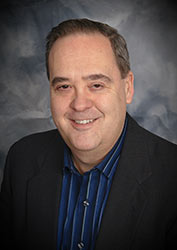
When To Walk Away
A book review written by Jim Gerakinis MA, LLP, Ed.S, MTS
2020 – It’s a new decade! If you are a goal setter like me you probably have some type of goal revolving around being more efficient with your time. What could be better than maximizing your positive impact with the time you have on those around you. In fact in social media it is very popular to have a goal to rid toxic people from your life in the name of better “self care”. Maybe you have encountered individuals who take up inordinate amounts of your time. In the counseling profession I hear many stories of individuals in toxic relationships. I was eager to gain a few tips on how to help individuals struggling in this area. Gary Thomas’ book When to Walk Away-Finding Freedom from Toxic People addresses this very topic. It may be a great resource for you- but not for the reason you might think!
What does “Toxic” mean?
Thomas states that there is no one exhaustive definition of a toxic person. Some traits are common. These individuals:
- Are ruled by selfishness and spite.
- Are usually draining instead of encouraging.
- Use people instead of loving them.
- Are often seemingly addicted to self righteousness and rash judgments.
- Frequently fight with people instead of enjoying and appreciating people.
- May be jealous of healthy people’s peace, family and friendships.
- Seek to bring people down to their level of misery rather than blessing others.
- Seek to control you (want you to stop being you)
Although not every toxic person will exhibit all three of these areas, a toxic person usually excels in at least one of these areas:
- A murderous spirit
- A controlling nature
- A heart that loves hate
“If someone is getting in the way of you becoming the person God created you to be or frustrating the work God has called you to do, for you that person is toxic” p 13.
What “toxic” means, and doesn’t mean.
Some use the label “toxic” too broadly as an excuse to avoid difficult, different, or hurting people. Followers of Christ can’t avoid ministering to these individuals. This is where this book resonates… knowing the difference and learning to play a good defense in toxic situations.
II Cor 5:20 (ESV) states “Therefore, we are ambassadors for Christ, God making his appeal through us. We implore you on behalf of Christ, be reconciled to God.
Just as an ambassador to a foreign country must know the mission of the sending country, he must also know the audience of the country to where he goes. God calls believers to know our mission (to help in the ministry of reconciliation by sharing the gospel) as well as knowing our audience we are serving.
Knowing our audience entails us to be “wise as serpents and innocent as doves.” (Matt 10:16 ESV) We should expect our audience (the world ) to be hostile to the message of Christ. Being as wise as serpents means we should be ready for hostility and toxicity may be one way this plays out.
Why do we need to protect ourselves from toxic people?
In Chapter 6 “No time to waste”, Thomas states that “this book puts dealing with toxic people into a spiritual not psychological perspective. It’s not about protecting yourself from toxic people (though that’s a valid aim); it’s more about protecting your mission from toxic attacks.” Further “the call to seek first the kingdom of God is the foundation for how we can biblically respond to toxic people” p 61.
How do we do it?
Thomas states that believers in Christ are wired for compassion, kindness, humility, gentleness, patience and love (Col 3:12, 14). How do Christ followers demonstrate a proper mindset and maintaining our mission? Thomas uses much of the book to describe biblical ways to deal with many different situations including those with toxic parents, toxic marriages, and toxic children. One of the most helpful sections was a listing of more than 40 times that Christ chose to walk away or let someone else walk away.
Some of the examples when Christ walked away?
An example of Christ walking away is found in( Matt 15:39 ESV), “And after sending away the crowds, he got into the boat and went to the region of Magadan.”
It is interesting that previously in verse 15:32 he had compassion on the crowd because they had been with him for three days with nothing to eat. “ I am unwilling to send them away hungry, lest they faint on the way.” It appears Christ took responsibility (despite the questioning of his disciples) for the physical needs of those honestly seeking him and fed them before sending them away.
Conversely, in the next chapter, Matt 16:4 (ESV) it states that Jesus left the pharisees and sadducees because “an evil and adulterous generation seeks for a sign” Christ was able to recognize those who were trying to trap him out of malicious intent and his response was to leave.
Is your mission God’s mission?
Are you willing or able to say no or walk away from those that are toxic so you can walk toward investing in reliable people in healthy relationships? Don’t let toxic individuals rob you from fulfilling God’s purposes for your life. However, don’t let a goal of being efficient with your time rob you of ministering to others simply because it is difficult or too time consuming
For further reading, the following are recommended:
- Boundaries By Henry Cloud and John Townsend
- Bold Love By Dan Allender and Tremper Longman III
- Books by Leslie Vernick

